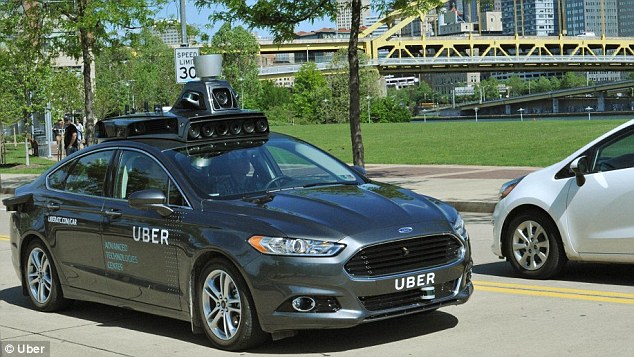Now Reading: Uber Releases First Electric Car Fleet in Madrid
-
01
Uber Releases First Electric Car Fleet in Madrid
Uber Releases First Electric Car Fleet in Madrid

Uber introduced its ride-hailing service in Madrid on Thursday its very first fleet of electrical automobiles.
In Spain’s capital city, like anywhere else, Uber’s service of matching private vehicle owners with passengers has triggered anger amongst the heavily-regulated taxi sector.
The company hopes the launching of cleaner vehicles will help improve its presence in a city governed by left-wing, environmentally mayor Manuela Carmena, stated Carles Lloret, managing director of Uber for southern Europe.
Madrid’s city administration in November revealed new steps at combating contamination, from restricting private traffic in the centre to tightening up speed limits on access roads.
“We want to do things that are in line with exactly what the town hall desires,” Lloret stated.
Regulation and hostility from regional taxi companies drove Uber off Spanish streets at the end of 2014 after a Spanish judge ruled the firm did not abide by the nation’s laws and represented unreasonable rivalry.
However it went back to Madrid in April with UberX which, unlike its former UberPOP service, employed professionally licensed drivers. The fleet of electric vehicles form a part of its premium UberONE service, which provides extras such as in-car Internet.
Uber runs in Madrid with limited licences which it says hampers growth. It hopes the launch of the ecologically service might encourage a liberalization of the car-sharing sector.
“We would love to see more licences granted in the future, maybe for greener automobiles so there could be more in circulation,” said Lloret.
Founded in 2009, Uber has expanded tremendously worldwide however has come up against opposition from standard taxi drivers and faced court injunctions in numerous countries, consisting of Belgium, France, Germany, Netherlands and Spain.
Stay Informed With the Latest & Most Important News
Previous Post
Next Post
-
 01Polestar Boss Says It’s Time To Outrun BMW M And Mercedes-AMG
01Polestar Boss Says It’s Time To Outrun BMW M And Mercedes-AMG -
 02Spy Shots: 2027 Mitsubishi Pajero Spotted in Testing Ahead of Possible U.S. Return
02Spy Shots: 2027 Mitsubishi Pajero Spotted in Testing Ahead of Possible U.S. Return -
 032026 Toyota Hilux EV: A Powerful Truck with Silent Torque
032026 Toyota Hilux EV: A Powerful Truck with Silent Torque -
 04Spy Photos: VW ID. Polo GTI Goes Electric with 223 HP and 280 Miles of Range
04Spy Photos: VW ID. Polo GTI Goes Electric with 223 HP and 280 Miles of Range -
![2027 Mercedes-Benz S-Class Debuts with V8 Engine [Photo Gallery]](https://speedlux.com/wp-content/uploads/2026/01/2027-Mercedes-Benz-S-Class-33-155x125.jpg) 052027 Mercedes-Benz S-Class Debuts with V8 Engine [Photo Gallery]
052027 Mercedes-Benz S-Class Debuts with V8 Engine [Photo Gallery] -
 06The Controversial Ford Voodoo V8 That Was Killed Off Too Early
06The Controversial Ford Voodoo V8 That Was Killed Off Too Early -
 07Hyundai Palisade’s Breakout Year Shows How Quickly the Market Can Turn
07Hyundai Palisade’s Breakout Year Shows How Quickly the Market Can Turn



![2027 Mercedes-Benz S-Class Debuts with V8 Engine [Photo Gallery]](https://speedlux.com/wp-content/uploads/2026/01/2027-Mercedes-Benz-S-Class-33-700x394.jpg)








































